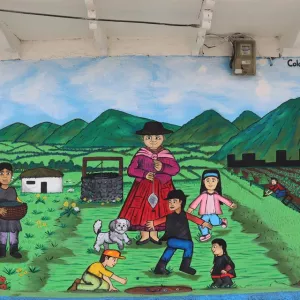Do Colombia's Seed Policies Support Farmer-Managed Seed Systems?
In Colombia, as in many parts of the world, a significant portion of farmers’ seeds are saved from their own harvests or obtained through informal distribution channels. These farmer-managed seed systems (FMSS) play a crucial role in ensuring food security and conserving agrobiodiversity. However, these systems face challenges from market forces, unfavorable agricultural policies, and the increasing impact of climate

Do Colombia's Seed Policies Support Farmer-Managed Seed Systems?
In Colombia, as in many parts of the world, a significant portion of farmers’ seeds are saved from their own harvests or obtained through informal distribution channels. These farmer-managed seed systems (FMSS) play a crucial role in ensuring food security and conserving agrobiodiversity. However, these systems face challenges from market forces, unfavorable agricultural policies, and the increasing impact of climate change.
To address these challenges and increase the sustainability of agriculture, there is an urgent need to develop resilient seed systems that support farmers and protect agrobiodiversity. Resilient seed systems should guarantee access to a diverse range of quality seeds, promote efficient and fair seed production and distribution, and recognize and respect the role of farmers as seed custodians. This raises the question: Does Colombia’s current policy and legal landscape provide the support needed for resilient seed systems to flourish?
As part of the CGIAR Initiative on Nature Positive Solutions, researchers from the Alliance examined the evolution of Colombia’s policy and legal framework related to seed systems. The study, published in Spanish as ‘Políticas, leyes y reglamentos en apoyo de los sistemas de semillas gestionados por los agricultores: el caso de Colombia‘ evaluates the extent to which national policies and laws support resilient farmer-managed seed systems, using eight dimensions of analysis:

